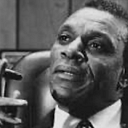Pencil and Paper
In his book, ‘The Jail Diary,’ the South African Supreme Court Justice, and anti-apartheid lawyer, Albie Sachs writes:
“The Paper is dazzingly white and in my hand is a pencil. The wood feels clumsy between my fingers. I must use it but to do what? I rest my hand on the pad and wait for my fingers to start moving. Should I write my name? But that would be silly. Should I draw something? But I am hopeless at drawing. The pencil point is on the paper now at the top right hand corner of the page. Slowly it presses up and down on that spot. The lead markings are like small pit of charcoal. My first creation is taking place. There it is: a tiny black blob.”
The above excerpt is from a section of the book, ‘Pencil and Paper.’ Sachs is describing when he finally received a piece of paper and a pencil so he could write while in prison. He had been held in jail under one of South Africa’s draconian laws to prevent dissent against racial apartheid. Sachs was an activist lawyer and he was targeted. He was put in solitary under the law. For an intellectual such as Sachs, who read and wrote each day, and studied, it was another layer of torture.
‘Pencil and Pen’ for me spoke to the majesty of the written word, the importance of communication and expression, even if it is to oneself. It also spoke to me as a long time writer. Each day the writer seems the paper — the blank paper and wants to fill it up with words, or something. The “dazzingly white” paper is all the writer has (today it is a white screen and a keyboard to many I suspect) and the writer must begin making charcoal like markings.
Sachs’ lack of access to writing tools, rendered him as “early man learning to write.” He was, according to Sachs, like “a child making its first marks.” He has been in jail so long, and denied writing so long, he is unsued to the “freedom” and is “helpless” (at first) “to utilize it.”
Sachs was able to secure access to the paper and pencil by law. Lawyers (the system itself) gave Sachs the paper and pencil after agitation and demur. The paper and pencil, Sachs realizes is a “tool of liberation and creativity” for millions. In some way, while Sachs was an advocate against the system of racial oppression in South Africa, the daily grind of the struggle made him lose sight of that. It was only when the pencil and paper were taken from him that he realized how fortunate he had been to be able to express himself and to engage with the page each day.
Writers, artists, etc. would be wise to heed the meaning in Sachs’ blessing and agony.
